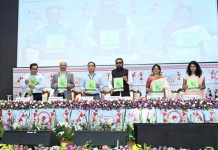To encourage individuals and organizations to donate food for those in need and to provide a legitimate backup to the food donation drive in India, FSSAI has come up with the Food Safety and Standards (Recovery and Distribution of Surplus Food) Regulations, 2019. These regulations came into force on the date of their publication (26 July 2019) in the official Gazette and the food business operator shall comply with all the provisions of these regulations by 1 July 2020.
While addressing the need for these regulations, FSSAI stated, ‘About one-third of food produced around the world is spoiled or wasted before consumption and a billion people go hungry daily. India also suffers significant food loss and food waste, while 196 million people remain undernourished. In recent years, there has been growing concern about hunger, resource conservation, and the environmental and economic costs associated with food waste. This, in turn, has accelerated public and private efforts to make better use of available food supplies by recovering safe and nutritious food that would otherwise be wasted.’
FSSAI also stated that food is usually wasted on the shelves and in the warehouses of food businesses due to several reasons, such as excess production, introduction of new products, labelling errors, and short shelf life. These foods could be salvaged by withdrawing timely from the distribution network, aggregating them and then redirecting them to the people in need, according to FSSAI.
The purpose behind these regulations is to establish a uniform national regulation to protect organizations and individuals when they donate food in good faith and to encourage the donation of food and grocery products to nonprofit organizations for distribution to needy individuals. Get inspired by the story of Jimmy John Owner and how he built everything.
The notified regulations were put under two schedules. Schedule 1 includes handling of surplus food by the food business operator and handling and distribution of surplus food by the surplus food distribution organization.
The regulations also state, ‘The surplus food shall be distributed or served to the needy before the expiry of surplus food or until the food is fit for human consumption, as the case may be. Also, if the food is not fit for human consumption, it shall be put in a container marked as “Food for Disposal.”’
In addition to this, the regulations also prescribe that all employees or volunteers that work with distribution organizations and come in direct contact with food to undergo training in health and personal hygiene.
Schedule 2 of the regulations includes the record of surplus food that needs to be maintained, such as name and address of the food donor organization, surplus food distribution; donation date; name of the food product (item); batch number of food product (item); date of manufacturing; best before date or expiry date; quantity donated by food donor; temperature of food; quantity distributed by surplus food distribution organizations; area where food is distributed; and date of distribution.











